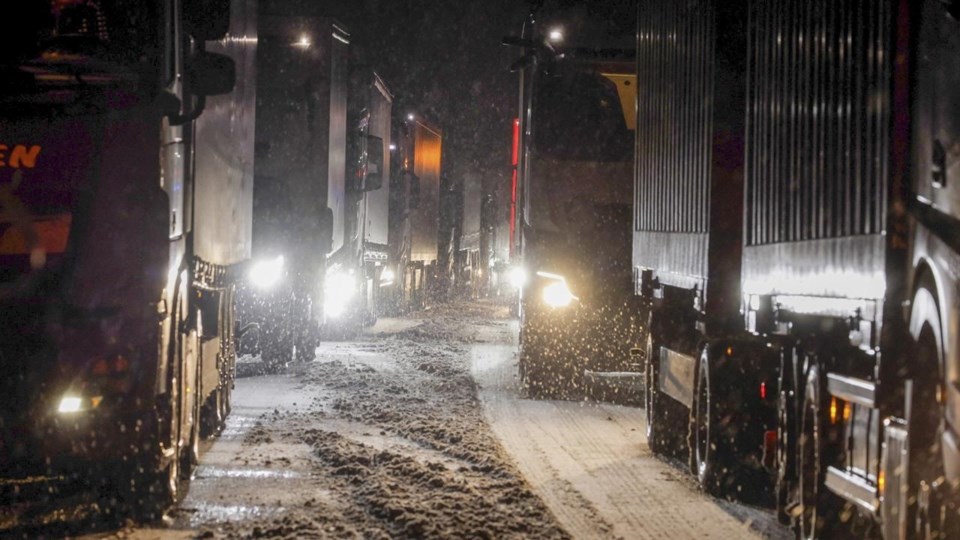BERLIN (AP) — Heavy snow and freezing rain hit parts of northern and central Europe on Wednesday, bringing transport to a halt in some Scandinavian regions and causing major disruption at airports in Frankfurt and Oslo.
At Frankfurt Airport, Germany's busiest, freezing rain forced a halt to takeoffs, German news agency dpa reported. The airport cited a danger of de-iced aircraft icing up again as they taxied toward the runway. Some departures resumed in the afternoon as the rain subsided. Hundreds of flights already had been canceled.
The airport in the Norwegian capital, Oslo, was closed temporarily as heavy snow reduced visibility for pilots. Airport spokesperson Ylva Celius Trulsen said the huge amount of snow and wind hampering traffic was “very unusual" and the resulting closure was ”extremely rare.” The airport reopened later Wednesday.
Heavy snowfall brought traffic to a standstill in large parts of Scandinavia, with roads and highways clogged with stranded motorists, public transportation delays, cancellations on some ferry routes and the closure of some bridges. Police in several parts of Denmark urged people to stay home. Southern Sweden also saw heavy snowfall.
The freezing rain across western and southern Germany led to many accidents on icy roads early Wednesday. As a precaution, many schools and kindergartens closed and some companies offered employees the option of working from home.
National train operator Deutsche Bahn canceled several long-distance trains and announced that the maximum speed of its ICE high-speed trains was limited to 200 kilometers per hour (124 mph) for the day as a precaution.
The small airport in Saarbruecken closed for the day, and there were delays and cancellations in Munich and elsewhere.
The Associated Press



